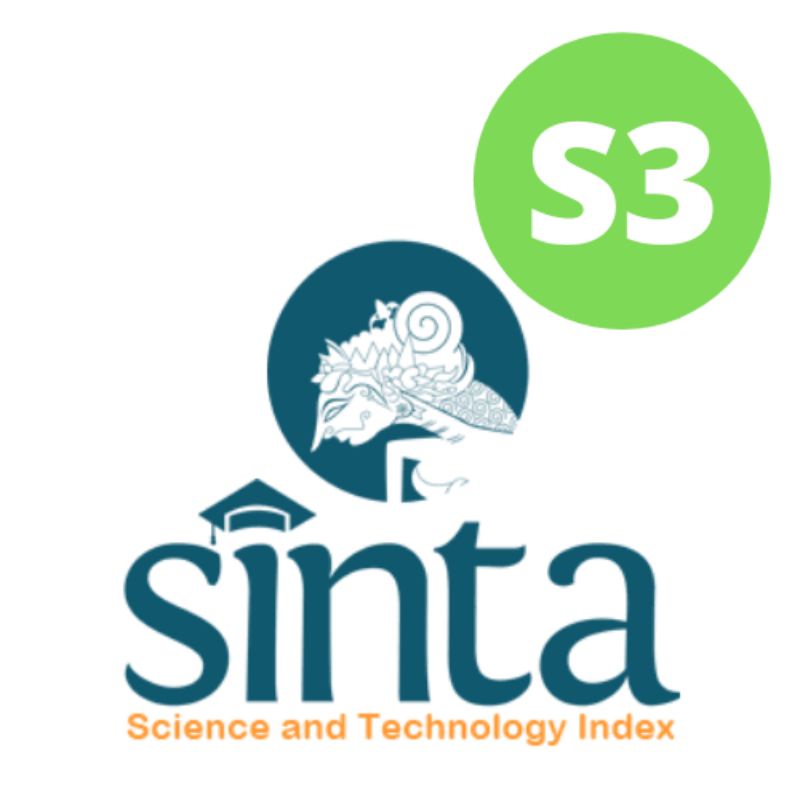Peningkatan kedisiplinan melalui metode reward and punishment pada Siswa Kelas 2 SDN Keputran
DOI:
https://doi.org/10.21831/foundasia.v12i1.38913Abstract
Penelitian ini bertujuan untuk meningkatkan disiplin belajar pada peserta didik kelas IIC SD Negeri Keputran 2 Yogyakarta menggunakan metode pembelajaran reward dan punishment. Jenis penelitian ini adalah penelitian tindakan kelas dengan model Kemmis dan Taggart yang dilaksanakan dalam empat tahap yaitu tahap perencanaan, pelaksanaan, observasi dan refleksi. Subjek dalam penelitian ini adalah peserta didik kelas IIC SD Negeri Keputran 2 Yogyakarta sejumlah 28 peserta didik. Objek dalam penelitian ini adalah aktivitas peserta didik berupa disiplin belajar. Rata-rata nilai pra tindakan adalah 4,5. Teknik pengumpulan data menggunakan observasi dan angket. Instrumen yang digunakan adalah lembar observasi aktivitas peserta didik dan guru serta lembar angket. Analisis data dilaksanakan dengan deskriptif kuantitatif dan kualitatif. Hasil penelitian menunjukkan bahwa penggunaan metode pembelajaran reward dan punishment dapat meningkatkan disiplin belajar pada peserta didik kelas IIC SD Negeri Keputran 2 Yogyakarta. Disiplin belajar melalui metode pembelajaran reward dan punishment peserta didik kelas IIC SD SD Negeri Keputran 2 Yogyakarta mengalami peningkatan dari siklus I sebesar 63% menjadi 72% pada siklus II.
References
Bayraktar, H. V., & Dogan, M. C. (2017). Investigation of Primary School Teachers' Perception of Discipline Types They Use for Classroom Management. Higher Education Studies, 7(1), 30. https://doi.org/10.5539/hes.v7n1p30
Bear, G. (2008). Discipline : Effective School Practices. Best Practices in School Psychology V, 1–4. http://www.nasponline.org/publications/booksproducts/hchs3_samples/s4h18_discipline.pdflast retrieved 12/10/2014
Bektas, F., í‡ogaltay, N., Karadag, E., & Ay, Y. (2015). School culture and academic achievement of students: A Meta-analysis study. Anthropologist, 21(3), 482–488. https://doi.org/10.1080/09720073.2015.11891837
Bugdol, M. (2018). The Definitions, Types and Functions of Discipline as Well as Factors Influencing Discipline BT - A Different Approach to Work Discipline: Models, Manifestations and Methods of Behaviour Modification (M. Bugdol (ed.); pp. 1–53). Springer International Publishing. https://doi.org/10.1007/978-3-319-74008-9_1
Cheema, J. R., & Kitsantas, A. (2014). Influences of disciplinary classroom climate on high school student self-efficacy and mathematics achievement: a look at gender and racial–ethnic differences. International Journal of Science and Mathematics Education, 12(5), 1261–1279. https://doi.org/10.1007/s10763-013-9454-4
Kumalasari, L. I., Kusrahmadi, S. D., & Herwin, H. (2020). Analisis hubungan antara kecerdasan emosional dengan kedisiplinan siswa sekolah dasar. FOUNDASIA, 11(2).
Kyriacou, C. (2009). Effective Teaching in Schools Theory and Practice (Third Edit). Nelson Thornes Ltd.
Lewis, R. (2001). Classroom discipline and student responsibility: : the students' view. Teaching and Teacher Education, 17(3), 307–319. https://doi.org/10.1016/S0742-051X(00)00059-7
Lickona, T. (1996). Eleven principles of effective character education. Journal of Moral Education, 25(1), 93–100. https://doi.org/10.1080/0305724960250110
MacNeil, A. J., Prater, D. L., & Busch, S. (2009). The effects of school culture and climate on student achievement. International Journal of Leadership in Education, 12(1), 73–84. https://doi.org/10.1080/13603120701576241
McMahon, S. D., Wernsman, J., & Rose, D. S. (2009). The relation of classroom environment and school belonging to academic self-efficacy among urban fourth-and fifth-grade students. Elementary School Journal, 109(3), 267–281. https://doi.org/10.1086/592307
Moberly, D. A., Waddle, J. L., & Duff, R. E. (2005). The use of rewards and punishment in early childhood classrooms. Journal of Early Childhood Teacher Education, 25(4), 359–366. https://doi.org/10.1080/1090102050250410
Nucci, L., Narvaez, D., & Krettenauer, T. (2014). Handbook of moral and character education. In Handbook of Moral and Character Education (Second Edi). Routledge. https://doi.org/10.4324/9780203114896
Purwaningsih, A. Y., & Herwin, H. (2020). Pengaruh regulasi diri dan kedisiplinan terhadap kemandirian belajar siswa di sekolah dasar. Jurnal Penelitian Ilmu Pendidikan, 13(1), 22–30. https://doi.org/10.21831/jpipfip.v13i1.29662
Safitri, N. (2015). Implementasi Pendidikan Karakter Melalui Kultur Sekolah Di SMP N 14 Yogyakarta. Jurnal Pendidikan Karakter, 2, 122482. https://doi.org/10.21831/jpk.v0i2.8621
Sari, B. P., & Hadijah, H. S. (2017). Meningkatkan Disiplin Belajar Siswa melalui Manajemen Kelas. Jurnal Pendidikan Manajemen Perkantoran, 2(2), 122. https://doi.org/10.17509/jpm.v2i2.8113
Setyosari, P. (2017). Menciptakan Pembelajaran Yang Efektif Dan Berkualitas. JINOTEP (Jurnal Inovasi Dan Teknologi Pembelajaran) Kajian Dan Riset Dalam Teknologi Pembelajaran, 1(5), 20–30. https://doi.org/10.17977/um031v1i12014p020
Sieberer-Nagler, K. (2015). Effective Classroom-Management & Positive Teaching. English Language Teaching, 9(1), 163. https://doi.org/10.5539/elt.v9n1p163
Siswoyo, D., & Hendrowibowo, L. (2020). Nilai-nilai dan metode pendidikan karakter di taman kanak-kanak di Banjarmasin. Foundasia, 11(1), 2020–2035. http://journal.uny.ac.id/index.php/foundasia/index
Sobri, M., Nursaptini, N., Widodo, A., & Sutisna, D. (2019). Pembentukan karakter disiplin siswa melalui kultur sekolah. Harmoni Sosial: Jurnal Pendidikan IPS, 6(1), 61–71. https://doi.org/10.21831/hsjpi.v6i1.26912
Soeprapto, S. (2013). Landasan Aksiologis Sistem Pendidikan Nasional Indonesia Dalam Perspektif Filsafat Pendidikan. Cakrawala Pendidikan, 0(2), 266–276. https://doi.org/10.21831/cp.v0i2.1485
Valsa, K. (2005). Action research for improving practice. In A SAGE Publication Campany (Vol. 36, Issue 6).
Wuryandani, W., Maftuh, B., . S., & Budimansyah, D. (2014). Pendidikan Karakter Disiplin Di Sekolah Dasar. Jurnal Cakrawala Pendidikan, 2(2), 286–295. https://doi.org/10.21831/cp.v2i2.2168
Downloads
Published
How to Cite
Issue
Section
License
 | ProGCouns: Professional Guidance and Counseling Journal by https://journal.uny.ac.id/index.php/progcouns is licensed under a Creative Commons Attribution-ShareAlike 4.0 International License. |











